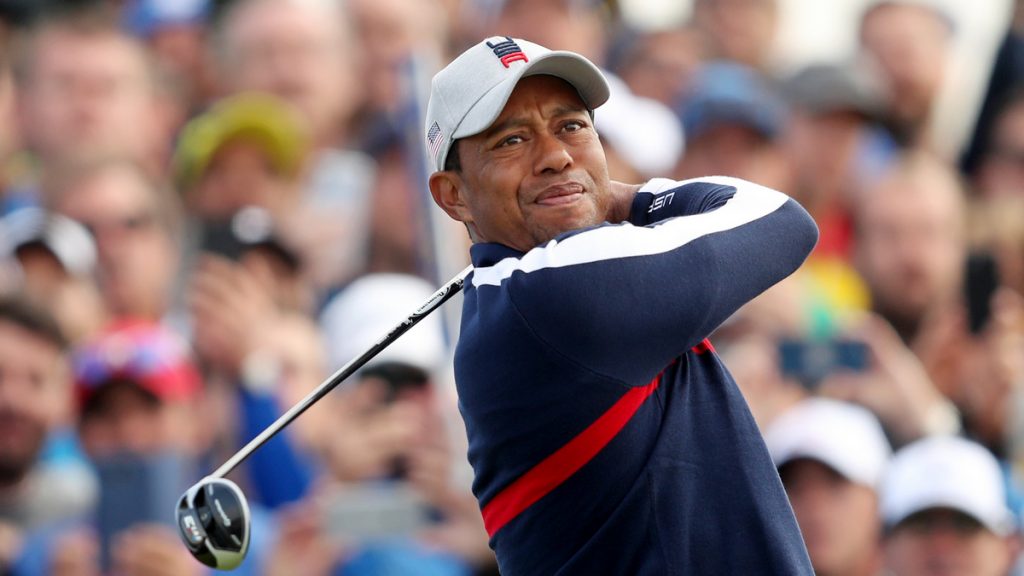Pride and passion. Two words long encapsulating the spirit of the biennial Ryder Cup matches originally between teams of professional golfers from the United States versus those from Great Britain and Ireland.
Starting in 1979, players from the Euro continent were added. Since the 1979 inclusion, 22 matches have been played with Europe winning 12, losing 9 with one tie resulting in Europe retaining the Cup because of a preceding win.
For the bulk of the event’s history no payments were made to the participants on either side. That changed in 1999 when the PGA of America, feeling pushback from several players, most prominently Tiger Woods, Phil Mickelson and David Duval, opted to contribute $200,000 to the charity of choice of USA team members.
Woods was clear in his feelings when providing comments to the Washington Post back in 1999.
“I would like to see us receive whatever the amount is, whether it’s $200,000, $300,000, $400,000, $500,000, and I think we should be able to keep the money and do whatever we see fit,” said the 15-time major winner. “I personally would donate all of it to charity. With all the money that’s being made, we should have a say in where it goes.”

In the lead-up to those matches at The Country Club, various USA team members voiced concern over how significant dollars were being collected by the PGA of America and that those on the front line — the players – received not one cent.
What the moaners and groaners did not realize is that prominent past participants — commencing from the very start of Ryder Cup competition beginning with Walter Hagen and going through the likes of Sam Snead, Ben Hogan, Arnold Palmer and Jack Nicklaus, et al, never were compensated for their involvement when competing in the Ryder Cup. Nor did any of them ask for such compensation.
Last week the PGA of America, in a clear preemptory move to place the payment issue in the rear-view mirror before the 2025 calendar ensues decided to provide an early Christmas gift in the sum of $500,000 for each of the 12 USA team members – bringing the total amount to $6 million.
The actual breakdown provides for a rise in the charitable contribution to $300,000 with the balance ($200,000) provided to the players as a “stipend.”
When announcing the decision, the PGA of America emphasized none of the players asked to be compensated. But frankly, even if any did, the organization would not have named them to avoid elevating the discussion to a higher level than the actual event itself. Such matters are discussed in dark corners — not where bright pubic sunlight shines.

***
Statement from the PGA of America
The players and captains, past and present, are responsible for the Ryder Cup becoming the most special competition in golf and one of the most in-demand events on the international sports scene. While no players asked to be compensated, the PGA of America Board of Directors has voted to increase the allocation to the members of the U.S. Ryder Cup team from $200,000 to be directed to charities – a figure unchanged since 1999 – to $500,000, with $300,000 of that to be directed to the charity or charities of the players’ choice. The balance is a stipend.
Golf is a long-established vehicle for good and it’s exciting to imagine the impact the members of the 2025 U.S. Ryder Cup team will deliver for worthy causes and communities across the country, including the many initiatives that support the growth of the game. In addition, efforts around the Ryder Cup will help fund the PGA of America REACH Foundation’s veteran program, PGA HOPE (Helping Our Patriots Everywhere) in which PGA of America Golf Professionals, who are trained in adaptive golf and military culture competency, provide free coaching and a transformative golf experience that has proven to change and save lives.
We are grateful to the many players and captains through the years who have so passionately represented our country and look forward to a memorable 2025 Ryder Cup at Bethpage Black.
***
How did this all unfold?
There’s no easy answer on that but clearly the financial elevation for the Ryder Cup has risen dramatically once the matches became more competitive.
Certain USA players have communicated in the shadows about being compensated. At the 2023 matches in Rome, Xander Schauffele’s father was quite clear in stating as much.
At last week’s PNC Championship, two-time major winner and past five-time member of the USA squad Mark O’Meara restated his thoughts on the subject.
“They should have listened to me in ’99,” O’Meara said. “Everybody around the Ryder Cup makes money. The guys putting on the show (the golfers) don’t make any money. They could have done something back then, they chose not to, and obviously it’s become an issue.”

O’Meara believes his stance on the subject infuriated PGA of America officials and inevitably cost him a future USA team Captaincy.
Estimates of revenues for the Ryder Cup are roughly $90 million every two years.
USA Ryder Cup Captain Keegan Bradley stated he would donate his financial share directly to charity.
Conversely, European team Captain Luke Donald told the Telegraph his thoughts on the subject.
“It’s one week where you play for more than yourself,” Donald told The Telegraph. “It’s not about money or points; it’s about coming together as a team and the fans feed off that — it’s all passion. I don’t think we should ever get paid.”
Rory McIlroy, the number three ranked player in the world and winner of four majors concurred with his Captain.
“I personally would pay for the privilege to play on the Ryder Cup,” McIlroy said in a BBC Sport interview. “The two purest forms of competition in our game right now are the Ryder Cup and the Olympics, and it’s partly because of that — the purity of no money being involved.”

What would have been interesting is the PGA of America should have countered with a different proposal. If the team should win at Bethpage, the $200,000 “stipend” per player is paid. If they lose – that amount remains with the organization and used for its various outreach efforts in growing the game.
Would players commit to such a situation? Frankly, the PGA of America should inform all prospective players that after losing 8 of the last 11 matches the need to improve one’s record of performance is clearly present.
The chief issue some USA players have raised is how much of a windfall the PGA of America is making from the matches.
Case in point – the announced ticket prices for the matches at Bethpage.
•Practice rounds: Tickets for Tuesday and Wednesday practice rounds — $255.27.
•Competition days: Tickets for Friday, Saturday, and Sunday competition days — $749.51.
•Thursday practice day: Tickets for the Thursday practice day, which also includes the Junior Ryder Cup, Celebrity Matches, and Opening Ceremony — $423.64.
What’s head-scratching is the incongruity of the Ryder Cup matches being held at a State Public Park and then mandating such prices charged.
If 40,000 tickets are sold at $749.51 the total comes to nearly $30 million. Attendees though will receive unlimited food and non-alcoholic drinks. One had best eat and drink plenty for what the ticket(s) costs.
The sad reality is that a large number of golf fans have grown weary of the constant whining from pro golfers on the subject of money. The elite players do very, very well financially.

When LIV Golf became the home destination for a number of former PGA Tour members the mindboggling amounts of cash paid, with limited exceptions, failed to demonstrate a corresponding superior level of play when competing in the major championships. That’s what happens when such events have no cuts and just 54 holes of competition.
Once players were satiated with the upfront money the resulting performances on the course were hardly worthy of such largesse.
Quick to counter, the PGA Tour also opted in raising purses for its weekly events as a mechanism to keep other member from heading to LIV Golf’s greener pastures – no pun intended.
Down the line it’s only a matter of time before the “stipend” amount the USA team receives increases. The flipside, at some point, European team members will demand financial compensation too.
The core genesis of the Ryder Cup was centered on pride and passion for the event. What was — is no longer.
Now everything, and everyone, has a price.
In the movie Wall Street, Gordon Gekko (Michael Douglas) spells out a forthright truth to Bud Fox (Charlie Sheen) — “It’s all about bucks kid, the rest is conversation.”
Yes indeed.



